Things You'll Need
Cooked whole chicken
Meat thermometer
Save your family and guests from the horrors of food poisoning by thoroughly cooking your whole chicken. Only one way to know that pathogens which cause food poisoning have been killed exists: using a meat thermometer to test the meat. The color of the flesh, long used to determine if the chicken cooked through, does not guarantee that the chicken no longer poses a danger to those who eat it. Throw out the old wives' tales and pull out your meat thermometer to be safe from food borne illness.
Step 1
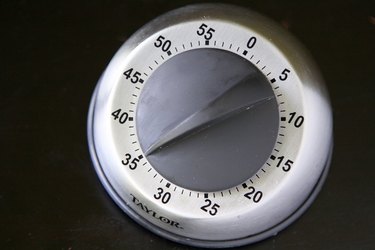
Test the meat at the time your recipe dictates.
Video of the Day
Step 2
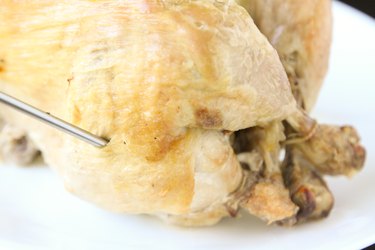
Insert the probe of the meat thermometer into the thickest portion of the thigh of the chicken without touching the bone. Look for a temperature of at least 165 degrees F in the thigh meat.
Step 3
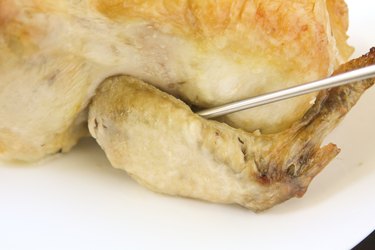
Stick the tip of the meat thermometer into the inner portion of the wing, without touching the bone, looking for a reading of 165 degrees F.
Step 4
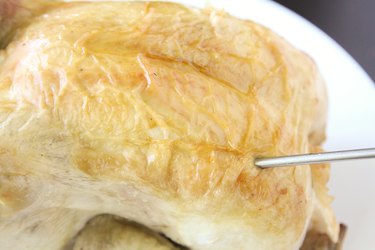
Check the chicken breast for an internal temperature of 165 degrees F by putting the end of the meat thermometer into the thickest part of the breast, without coming into contact with the bone.
Step 5
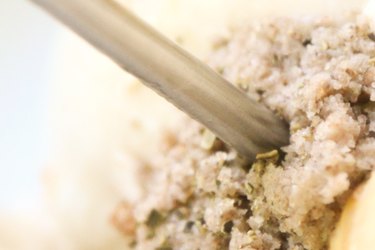
Push the meat thermometer into the middle of the stuffing, if cooking a stuffed chicken. Look for at least 165 degrees F for the temperature of the stuffing.
Warning
Never eat an undercooked chicken or stuffing, as food poisoning could result.
Discard any leftovers after they sit for more than two hours at room temperature. Avoid waste by immediately freezing or refrigerating excess chicken.
Always reheat all leftovers to 165 degrees F to maintain food safety.
Video of the Day
